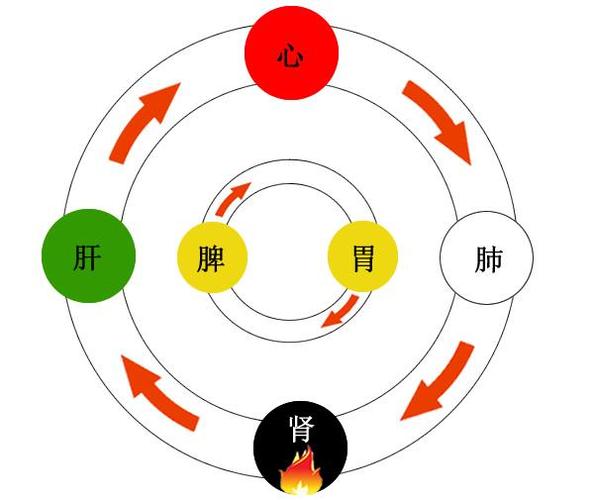In today's fast-paced world, the quality of the air we breathe is becoming an increasingly significant factor affecting our health. As urbanization and industrial activities surge, **air quality** has deteriorated, posing serious risks to our well-being. This article delves into the relationship between **air quality** and health, offering practical tips to mitigate its effects and improve overall health.
### Understanding Air Quality and Its Impact
**Air quality** is defined by the presence of pollutants in the air, such as particulate matter (PM2.5 and PM10), nitrogen dioxide (NO2), sulfur dioxide (SO2), carbon monoxide (CO), and ozone (O3). These pollutants can originate from various sources including vehicle emissions, industrial discharges, and natural events like wildfires.
Poor **air quality** has been linked to a range of health issues, from respiratory problems to cardiovascular diseases. Fine particulate matter, for instance, can penetrate deep into the lungs and even enter the bloodstream, leading to chronic conditions such as asthma, bronchitis, and heart disease. Long-term exposure to these pollutants can exacerbate pre-existing conditions and reduce overall life expectancy.
### The Connection Between Air Quality and Health
1. **Respiratory Health**: Pollutants such as PM2.5 and ozone can irritate the respiratory tract, causing or worsening conditions like asthma and chronic obstructive pulmonary disease (COPD). Studies have shown that individuals exposed to high levels of these pollutants are at a greater risk of developing respiratory infections and reduced lung function.
2. **Cardiovascular Health**: Exposure to pollutants such as NO2 and PM2.5 has been associated with an increased risk of heart attacks, strokes, and hypertension. Pollutants can contribute to inflammation and oxidative stress, which in turn can lead to the development of cardiovascular diseases.
3. **Mental Health**: Emerging research suggests that poor **air quality** may also impact mental health. Pollutants are thought to influence brain function and can be linked to cognitive decline, depression, and anxiety.
4. **Children and Elderly**: The very young and the elderly are particularly vulnerable to the effects of poor **air quality**. Children’s developing respiratory systems and the elderly’s often compromised health make them more susceptible to the adverse effects of air pollution.

### How to Monitor and Improve Air Quality
1. **Check Air Quality Index (AQI)**: Regularly monitoring the AQI can help you stay informed about the **air quality** in your area. Various apps and websites provide real-time data and forecasts, allowing you to plan your activities accordingly.
2. **Use Air Purifiers**: Investing in a good-quality air purifier can significantly reduce indoor air pollution. Look for models with HEPA filters, which are effective in capturing fine particulate matter and other pollutants.
3. **Ventilation and Houseplants**: Proper ventilation can help reduce indoor air pollutants. Additionally, certain houseplants, such as spider plants and peace lilies, can improve indoor air quality by filtering out toxins.
4. **Reduce Emissions**: Minimizing the use of vehicles and opting for public transportation, carpooling, or biking can help reduce outdoor air pollution. Additionally, using energy-efficient appliances and reducing industrial emissions contribute to better **air quality**.
5. **Healthy Lifestyle Choices**: Maintaining a healthy lifestyle can help mitigate the effects of poor air quality. Regular exercise, a balanced diet rich in antioxidants, and adequate hydration can strengthen your immune system and improve overall health.
### Practical Tips for Daily Life
1. **Limit Outdoor Activities**: On days when the AQI is poor, try to limit outdoor activities, especially strenuous exercises. When you must go outside, try to do so in the morning when pollution levels are generally lower.
2. **Stay Informed**: Keep abreast of local air quality reports and advisories. Some communities have air quality alerts that provide information on when it is safest to be outdoors.
3. **Create a Clean Indoor Environment**: Keep your home clean and free of dust, mold, and other allergens. Regularly clean air filters and ensure that your home is well-ventilated.

4. **Support Policies for Better Air Quality**: Advocate for and support policies aimed at reducing air pollution, such as stricter emissions regulations and investment in renewable energy sources.
### Conclusion
Improving **air quality** is crucial for enhancing public health and well-being. By understanding the impact of pollutants on health and taking proactive measures to monitor and improve air quality, individuals can significantly reduce their risk of associated health problems. It’s a collective effort that involves personal choices, community actions, and supportive policies.
By staying informed and adopting practices that protect both yourself and the environment, you contribute to a healthier, more sustainable world. Remember, every small step counts towards achieving better **air quality** and a healthier life.
### Tags:
- Air Quality
- Health Tips
- Pollution Solutions
转载请注明:成都会所桑拿-四川成都休闲桑拿推荐论坛! » 武汉桑拿 » ## The Impact of Air Quality on Health: How to Enhance Your Well-being in a Polluted World
版权声明
本文仅代表作者观点,不代表成都休闲网立场。
本文系作者授权发表,未经许可,不得转载。


























